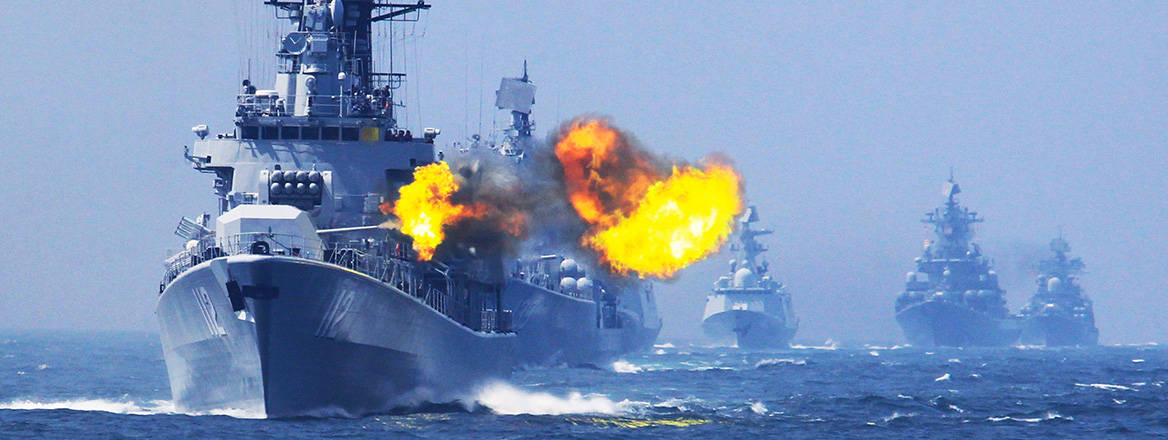Recent strategic missteps by Russia and China provide the US with an opportunity to develop a more creative and sustainable foreign policy.
Russia’s invasion of Ukraine has shattered Europe’s post-Cold War hopes that the continent would avoid a large-scale armed confrontation, renewed global anxiety over the spectre of a great-power war that could escalate to the nuclear level, and evoked distressing comparisons to the march of militaristic authoritarians during the 1930s. Although the US worked assiduously to prevent a worst-case scenario, declassifying intelligence assessments of Russia’s intentions and threatening crippling economic sanctions, Moscow nonetheless proceeded.
Russia’s fateful decision highlights the limits of US influence. But it also reveals Russia to be a self-saboteur, contrary to a prevalent narrative that holds Moscow to be stealthily outmanoeuvring Washington on the global stage. Its invasion has cemented transatlantic alignment; imbued NATO with newfound momentum; accelerated the EU’s efforts to reduce the bloc’s dependence on Russian energy; prompted a fundamental recalibration of German foreign policy; restricted Russia’s access to global capital and technological inputs; and made Moscow further beholden to Beijing. Whatever the outcome of Russia’s unfolding war of attrition with Ukraine, the former’s military capabilities and deterrence capacity will have been considerably degraded. And Moscow has also given a shot in the arm to centrist European parties, which can now recast their aspirations for continental integration as a safeguard against unprovoked aggression.
Moscow’s strategic outlook is a far cry from a little over a decade ago, when President Vladimir Putin expressed his hope that Russia would serve as a thriving economic intermediary between Western Europe and the Asia-Pacific.
Whatever the outcome of Russia’s unfolding war of attrition with Ukraine, the former’s military capabilities and deterrence capacity will have been considerably degraded
And what of China, Russia’s essential partner and the US’s chief competitor? It poses a far more systemic challenge on account of its economic size and innovative capacity, which enable it to strengthen its footprint even in countries that have growing apprehensions over its conduct and intentions, and the cross-Strait correlation of forces continues to grow in Beijing’s favour. However, it too is emerging as a self-limiting competitor – if less blunderingly than Russia – largely on account of the counterproductive diplomacy it has pursued since the onset of the coronavirus pandemic. Its relationships with Australia, India and Japan have deteriorated over the course of the past two years, enabling the Quad to transition from a lacklustre abstraction into a robust grouping. While South Korea does not belong to that set, it is likely to adopt a more assertive posture towards China and develop a more amicable relationship with Japan after the recent election of Yoon Seok-youl. The EU, meanwhile, is reassessing its disposition towards China, as seen with the bloc’s decisions to pause the ratification of the Comprehensive Agreement on Investment and to bring a trade case against China to the World Trade Organization. Having announced three weeks before Russia invaded Ukraine that the Sino-Russian friendship ‘has no limits’, China is eliciting further distrust in advanced industrial democracies as Russia continues to lay siege to a sovereign neighbour.
Beijing will find it difficult to achieve regional dominance, let alone global pre-eminence, if it cannot restore a baseline of trust with the countries that still wield the balance of military power and economic heft.
While the preceding observations are intended to counter fatalism about the US’s competitive prospects, there are at least three reasons to reject insouciance.
First, Russia and China cannot be locked away in a strategic closet: both are significant powers, albeit in different ways. The vast majority of the world’s countries have not sanctioned Russia. Importantly, the world’s largest democracy, India, seeks to safeguard its defence relationship with Russia and perhaps even establish a rupee-ruble exchange. With the world’s largest nuclear stockpile and proven reserves of natural gas, Russia cannot be dismissed. Indeed, having undermined global security, disrupted energy supplies, and exacerbated food shortages, its invasion affirms not only that Moscow wields enduring influence, but also that attempts to destabilise the prevailing order are at least as much cause for concern as efforts to remould it. China, of course, benefits not only from the objective power that it is amassing, but also from the narrative momentum that its trajectory generates: the country’s leadership finds growing traction for its proposition that Beijing is steadily resurgent while Washington is in terminal decline.
The US cannot conclude from the short-term response of many fellow democracies to Russia’s invasion that it will find support for a long-term great-power competition against Moscow and Beijing
Second, while the US’s sole post-war experience of long-term strategic competition ended decisively with the Soviet Union’s dissolution, neither Russia nor China seems likely to collapse. It is unclear what ‘victory’ over them would entail in practice, especially considering that the US will be unable to achieve its own vital national interests if its relations with these two countries deteriorate indefinitely. There is no self-evident alternative to strained cohabitation that permits minimal cooperation – however begrudging – on the familiar litany of transnational challenges: climate change, pandemics and nuclear proliferation, to name but a few.
Third, the US’s strategic outlook is growing more strained. Its relative influence has declined considerably since the end of the Cold War. Russia and China’s competitive missteps will not assuage the concerns of US allies and partners about the unpredictability of US foreign policy; they must weigh the possibility that Washington could revert to an ‘America First’ brand of transactionalism in 2025. And the US cannot conclude from the short-term response of many fellow democracies to Russia’s invasion that it will find support for a long-term, expansively conceived great-power competition against Moscow and Beijing.
On balance, the US must avoid both complacency and consternation in appraising Russia and China: they are enduring competitors but self-constraining ones. Rather than attempting the unfeasible – countering each of their current and future initiatives and forestalling each of their subsequent provocations – Washington should pursue the practical: formulating a more creative, sustainable foreign policy that can advance US national interests no matter what steps Moscow and Beijing take. Their recent competitive missteps give the US breathing room to undertake that task.
The author's book, America’s Great-Power Opportunity: Revitalizing US Foreign Policy to Meet the Challenges of Strategic Competition, will be published in the UK by Polity Books on 29 April 2022.
The views expressed in this Commentary are the author’s, and do not represent those of RUSI or any other institution.
Have an idea for a Commentary you’d like to write for us? Send a short pitch to commentaries@rusi.org and we’ll get back to you if it fits into our research interests. Full guidelines for contributors can be found here.
WRITTEN BY
Ali Wyne
- Jim McLeanMedia Relations Manager+44 (0)7917 373 069JimMc@rusi.org


